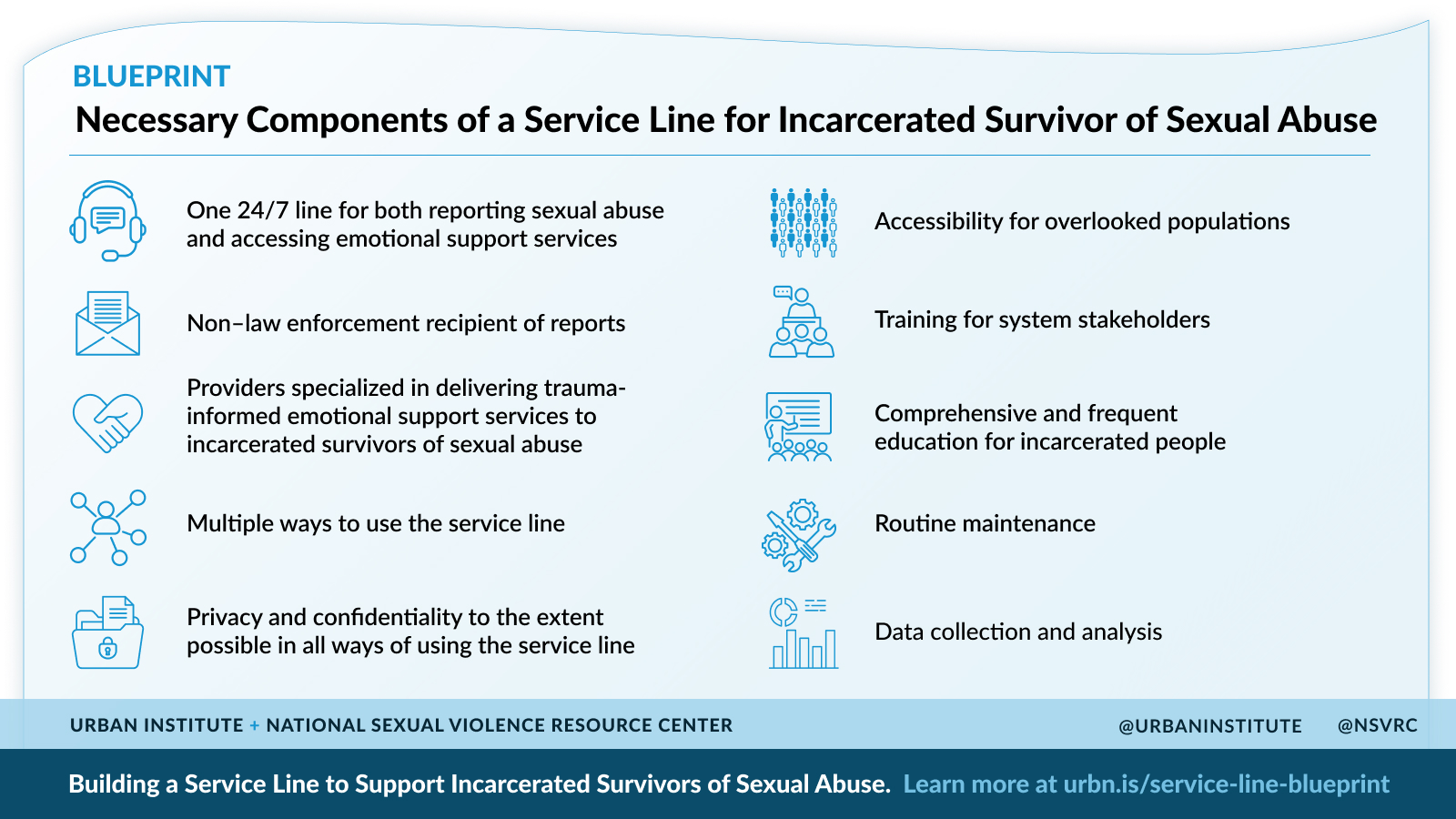
Sexual abuse and harassment in US correctional facilities remains a critical issue, with thousands of cases reported annually. These incidents are significantly underreported, however, owing to barriers including fear of retaliation, stigma, and lack of confidentiality. In 2003, lawmakers passed the Prison Rape Elimination Act (PREA) with unanimous, bipartisan support and charged the National Prison Rape Elimination Commission with developing standards that were released in 2012. Over a decade later, fewer than half of states, territories, and the District of Columbia are in full compliance with PREA. Many places face challenges meeting two of these standards: Standards § 115.51/115.351 and 115.53/115.353, which mandate that incarcerated survivors be enabled to report sexual abuse externally and receive confidential emotional support services in response to sexual victimization from outside sources.
The Office on Violence Against Women, in partnership with the Bureau of Justice Assistance, funded the Urban Institute and the National Sexual Violence Resource Center to assess whether a national service line could help reduce challenges incarcerated survivors have reporting sexual abuse externally and accessing external emotional support services. We held focus groups and interviews with 165 people, including PREA auditors, victim service providers, correctional leaders and staff from 20 correctional facilities (including federal, state, and county facilities), and incarcerated people from 6 correctional facilities.
This report and blueprint for the design and implementation of a national service line for reporting sexual abuse externally and accessing external emotional support services summarizes findings from Urban’s assessment of current policies and practices and recommendations for the design and implementation of a national service line.
Recommendations included in the blueprint were finalized with guidance from the Office on Violence Against Women and the Bureau of Justice Assistance and by a steering committee of experts, including formerly incarcerated survivors, practitioners, and scholars.
